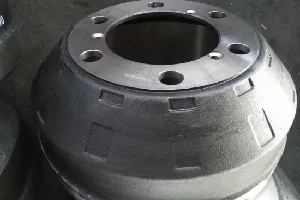
-
 Afrikaans
Afrikaans -
 Albanian
Albanian -
 Amharic
Amharic -
 Arabic
Arabic -
 Armenian
Armenian -
 Azerbaijani
Azerbaijani -
 Basque
Basque -
 Belarusian
Belarusian -
 Bengali
Bengali -
 Bosnian
Bosnian -
 Bulgarian
Bulgarian -
 Catalan
Catalan -
 Cebuano
Cebuano -
 Corsican
Corsican -
 Croatian
Croatian -
 Czech
Czech -
 Danish
Danish -
 Dutch
Dutch -
 English
English -
 Esperanto
Esperanto -
 Estonian
Estonian -
 Finnish
Finnish -
 French
French -
 Frisian
Frisian -
 Galician
Galician -
 Georgian
Georgian -
 German
German -
 Greek
Greek -
 Gujarati
Gujarati -
 Haitian Creole
Haitian Creole -
 hausa
hausa -
 hawaiian
hawaiian -
 Hebrew
Hebrew -
 Hindi
Hindi -
 Miao
Miao -
 Hungarian
Hungarian -
 Icelandic
Icelandic -
 igbo
igbo -
 Indonesian
Indonesian -
 irish
irish -
 Italian
Italian -
 Japanese
Japanese -
 Javanese
Javanese -
 Kannada
Kannada -
 kazakh
kazakh -
 Khmer
Khmer -
 Rwandese
Rwandese -
 Korean
Korean -
 Kurdish
Kurdish -
 Kyrgyz
Kyrgyz -
 Lao
Lao -
 Latin
Latin -
 Latvian
Latvian -
 Lithuanian
Lithuanian -
 Luxembourgish
Luxembourgish -
 Macedonian
Macedonian -
 Malgashi
Malgashi -
 Malay
Malay -
 Malayalam
Malayalam -
 Maltese
Maltese -
 Maori
Maori -
 Marathi
Marathi -
 Mongolian
Mongolian -
 Myanmar
Myanmar -
 Nepali
Nepali -
 Norwegian
Norwegian -
 Norwegian
Norwegian -
 Occitan
Occitan -
 Pashto
Pashto -
 Persian
Persian -
 Polish
Polish -
 Portuguese
Portuguese -
 Punjabi
Punjabi -
 Romanian
Romanian -
 Russian
Russian -
 Samoan
Samoan -
 Scottish Gaelic
Scottish Gaelic -
 Serbian
Serbian -
 Sesotho
Sesotho -
 Shona
Shona -
 Sindhi
Sindhi -
 Sinhala
Sinhala -
 Slovak
Slovak -
 Slovenian
Slovenian -
 Somali
Somali -
 Spanish
Spanish -
 Sundanese
Sundanese -
 Swahili
Swahili -
 Swedish
Swedish -
 Tagalog
Tagalog -
 Tajik
Tajik -
 Tamil
Tamil -
 Tatar
Tatar -
 Telugu
Telugu -
 Thai
Thai -
 Turkish
Turkish -
 Turkmen
Turkmen -
 Ukrainian
Ukrainian -
 Urdu
Urdu -
 Uighur
Uighur -
 Uzbek
Uzbek -
 Vietnamese
Vietnamese -
 Welsh
Welsh -
 Bantu
Bantu -
 Yiddish
Yiddish -
 Yoruba
Yoruba -
 Zulu
Zulu
Jan . 28, 2025 04:12
Back to list
do brake drums need to be replaced
When it comes to vehicle maintenance, the question of whether or not you need to replace brake drums is a common one among car owners. Brake drums play a vital role in the safety and performance of your vehicle's braking system, so understanding when and why they need replacing is crucial.
Vehicles equipped with drum brakes may require more frequent inspections than those with disc brakes. Regular inspections help maintain the integrity of the braking system. This involves not just checking the drums, but also the brake shoes and the hardware that keeps everything in place. When considering replacement, always opt for high-quality replacement parts. Choosing components from reputable manufacturers ensures longevity and reliability, enhancing the vehicle's performance and safety. Automotive experts strongly advise against cutting costs when it comes to brakes; after all, they are one of the most critical safety features of your vehicle. Authoritative sources in vehicle safety recommend that all brake components be maintained according to the manufacturer’s service schedule. Routine checks can prevent the unexpected failure of the brake system, ensuring the safety of you and your passengers. Workshops with certified technicians provide the most reliable assessments and service for your vehicle. Trustworthiness in brake maintenance is built through transparent communication with your automotive service provider. When your mechanic explains the issues and replacement procedures clearly, it builds confidence in the service being provided. Always ask for the specifications used to determine if brake drums need replacement and request to see the measurements of the old parts. To conclude, understanding when and why brake drums need replacement is an essential part of vehicle maintenance. With expert guidance, adherence to service schedules, and the use of high-quality replacement parts, you can ensure the safety and performance of your vehicle's braking system. By prioritizing the maintenance of your braking components, you provide yourself peace of mind on the road. Always remember, effective braking isn't just about stopping—it's about safe driving.


Vehicles equipped with drum brakes may require more frequent inspections than those with disc brakes. Regular inspections help maintain the integrity of the braking system. This involves not just checking the drums, but also the brake shoes and the hardware that keeps everything in place. When considering replacement, always opt for high-quality replacement parts. Choosing components from reputable manufacturers ensures longevity and reliability, enhancing the vehicle's performance and safety. Automotive experts strongly advise against cutting costs when it comes to brakes; after all, they are one of the most critical safety features of your vehicle. Authoritative sources in vehicle safety recommend that all brake components be maintained according to the manufacturer’s service schedule. Routine checks can prevent the unexpected failure of the brake system, ensuring the safety of you and your passengers. Workshops with certified technicians provide the most reliable assessments and service for your vehicle. Trustworthiness in brake maintenance is built through transparent communication with your automotive service provider. When your mechanic explains the issues and replacement procedures clearly, it builds confidence in the service being provided. Always ask for the specifications used to determine if brake drums need replacement and request to see the measurements of the old parts. To conclude, understanding when and why brake drums need replacement is an essential part of vehicle maintenance. With expert guidance, adherence to service schedules, and the use of high-quality replacement parts, you can ensure the safety and performance of your vehicle's braking system. By prioritizing the maintenance of your braking components, you provide yourself peace of mind on the road. Always remember, effective braking isn't just about stopping—it's about safe driving.
Prev:
Next:
Latest news
-
What Are Drum BrakesNewsJul.07,2025
-
Understanding Brake Drum MaterialNewsJul.07,2025
-
Semi-Trailer Brake Drum: A Key Component for Extreme Loads and Long-Distance TransportNewsJul.07,2025
-
Drum Brake Pads for SaleNewsJul.07,2025
-
Brake Drums for SaleNewsJul.07,2025
-
Brake Drum ManufacturerNewsJul.07,2025
-
Aluminum Brake Drums: The Future of High-Performance CarsNewsJul.07,2025
